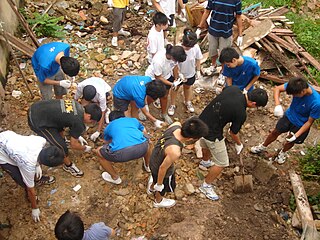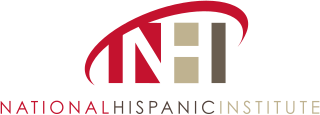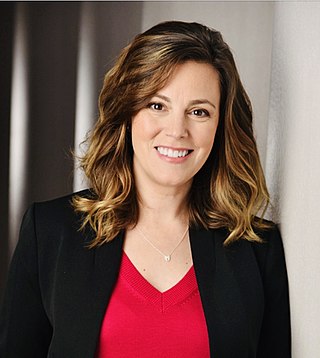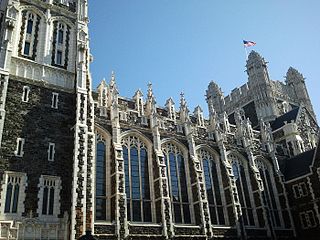Programs
IGNITE
The flagship program, IGNITE is a year-long experience for high school juniors focusing on leadership development, service learning and civic engagement. Beginning with a four-day Summer Academy, students develop knowledge, skills and behaviors related to leadership and active citizenship, including self-confidence, team building, conflict management, critical thinking and problem solving skills.
Throughout the year, teams of students at 35+ schools along Colorado's Front Range participate in monthly Challenges and service projects designed to involve them in their local communities while exploring topics such as community building, the role of media in society, leadership in the workplace, and state and local government.
IGNITE culminates with each school team identifying a need in their community and partnering with an outside organization to implement a project that helps that need.
Global Challenge
Global Challenge is a yearlong experience for high school seniors designed to expand students’ worldview and explore leadership in a global context, beginning with a 3-day Summer Academy.
Throughout their senior year, students participate in monthly seminars centered on issues related to global leadership, including intercultural communication, diplomacy, economics and development. In addition, they examine topics such as indigenous cultures, historic and current conflict, the role of women, human rights, and policies concerning the environment, health, and service.
The cornerstone of Global Challenge is an international trip over Spring Break, in which students live and work with citizens of either Costa Rica or Slovakia, and have the opportunity to experience their culture and customs firsthand while making a difference in the community.
Colorado Close Up
Colorado Close Up has been the state's largest civic education initiative since 1979, bringing students from across Colorado to the state Capitol for three days.
While visiting Denver, students have the opportunity to observe the state legislature and courts, meet with elected officials from each branch of government, and work with lobbyists and business leaders to discuss how they can impact their communities.
Participants return home from Colorado Close Up with the knowledge and skills to identify problems and draw on local resources to create change in their communities.
Colorado Close Up was absorbed by Leader's Challenge in 2006.

YMCA Youth and Government (YaG), also known as Youth In Government, or Model Legislature and Court, is a program of the YMCA of the USA that allows high school students to serve in model governments at the local, state, national, and international levels.

Experiential education is a philosophy of education that describes the process that occurs between a teacher and student that infuses direct experience with the learning environment and content. The term is not interchangeable with experiential learning; however experiential learning is a sub-field and operates under the methodologies of experiential education. The Association for Experiential Education regards experiential education as "a philosophy that informs many methodologies in which educators purposefully engage with learners in direct experience and focused reflection in order to increase knowledge, develop skills, clarify values, and develop people's capacity to contribute to their communities". Experiential education is the term for the philosophy and educational progressivism is the movement which it informed. The Journal of Experiential Education publishes peer-reviewed empirical and theoretical academic research within the field.

Service-learning is an educational approach that combines learning objectives with community service in order to provide a pragmatic, progressive learning experience while meeting societal needs.

City Year is an American education nonprofit organization founded in 1988. The organization partners with public schools in 29 high-need communities across the US and through international affiliates in the UK and Johannesburg, South Africa. City Year teams are made up of 18 to 24 year olds, who provide student, classroom, and whole school support, intended to help students stay in school and on track to graduate high school. City Year is a member of the AmeriCorps national service network, and is supported by the Corporation for National and Community Service, school district partnerships, and private philanthropy from corporations, foundations and individuals.

Civic engagement or civic participation is any individual or group activity addressing issues of public concern. Civic engagement includes communities working together or individuals working alone in both political and non-political actions to protect public values or make a change in a community. The goal of civic engagement is to address public concerns and promote the quality of the community.

The National Hispanic Institute (NHI) is an international nonprofit organization dedicated to serving the future leadership needs of the global Hispanic community. Founded in 1979 in the State of Texas with the mission of serving the future leadership needs of the United States via the Hispanic/Latino community, NHI became the largest Latino youth organization in the United States. NHI is now an international organization with over 85,000 alumni worldwide and a well-known consortium of notable colleges and universities.

Coro is an American non-partisan, non-profit organization best known for its fellowship program dedicated to teaching skills useful in leadership in public affairs to young adults.
The Robertson Scholars Leadership Program is a joint merit scholarship and leadership development program at Duke University and the University of North Carolina at Chapel Hill. The scholarship offers participants a unique "dual citizenship" at both Duke University and UNC-Chapel Hill. Approximately 25-30 students are selected from the pool of applicants to both universities.
The Maryland School of Public Policy is one of 14 schools at the University of Maryland, College Park. The school is located inside the Capital Beltway and ranks 16th nationally for schools of public policy according to U.S. News & World Report (2012).
The Presidents Leadership Class (PLC) at the University of Colorado at Boulder is one of the oldest collegiate leadership programs in the United States. A four-year academic and experiential learning program for top students at the University of Colorado at Boulder, the Presidents Leadership Class was named to honor the president of the University of Colorado as well as the corporate presidents and executives involved in the program's formation.

Melissa Helmbrecht is a New Jersey based, social entrepreneur, and advocate for young people. Over the course of her career, she has worked with children and families who struggle with adversity by helping them get the tools and resources they need to improve their lives. Through non-profit work, she actively addresses three social problems including reforming the foster care system, making college affordable for low income youth, and engaging young people in volunteer service and civic life.
The African Leadership Academy (ALA) is an educational institution located in the outskirts of Johannesburg, South Africa, for students between the ages of 16 to 19 years old, with current alumni coming from 46 countries.
Anju Bhargava is a management consultant who was a member of President Barack Obama's inaugural Advisory Council on Faith Based and Neighborhood Partnership.

The California Association of Student Councils (CASC) is a non-profit, student-led youth leadership and advocacy organization. Founded in 1947 by the California Department of Education and now-Association of California School Administrators, CASC has provided a multitude of conferences to students, advisors, and professionals in both California and around the world.

Thomas J. Spaulding Jr. is an American author and president of Tommy Spaulding Companies LLC. His book It's Not Just Who You Know was released on August 10, 2010. Spaulding is also the former CEO and President of, Up with People, and founded Leader's Challenge, a high school civics program in the state of Colorado.
El Pomar Foundation is a private, general purpose foundation established in 1937 by Spencer and Julie Penrose. With a mission to “enhance, encourage, and promote the current and future well-being of the people of Colorado,” El Pomar Foundation provides more than $22 million annually in grants and programs throughout the state.

Colin Powell School for Civic and Global Leadership at the City College of New York (CCNY) is a nonpartisan educational, training, and research center named for its founder, General Colin L. Powell, USA (Retired), a graduate of CCNY. The goals of the Powell School are to build leaders for the common good, promote civic engagement, and strengthen connections between the campus and neighboring communities. The current dean is Andrew Rich.
Action civics is a modern and alternative form of civics education in the United States. Action civics is an applied civic education process in which participants learn about government by examining issues in their own community and then select a focus issue for action through a process of debate, research the issue and learn advocacy strategies, develop civic skills such as public speaking, formulate a plan, mobilize, educate, then evaluate, and reflect on their experience. Participants' voices are encouraged, valued and incorporated. Participants learn by doing, with a focus on collective action. Action civics can encompass a number of different actions from community service to electoral engagement and from talking about concerns with public officials to creating peer education campaigns.
Global citizenship education (GCED) is a form of civic learning that involves students' active participation in projects that address global issues of a social, political, economic, or environmental nature. The two main elements of GCE are 'global consciousness'; the moral or ethical aspect of global issues, and 'global competencies', or skills meant to enable learners to participate in changing and developing the world. The promotion of GCE was a response by governments and NGOs to the emergence of supranational institution, regional economic blocs, and the development of information and communications technologies. These have all resulted in the emergence of a more globally oriented and collaborative approach to education. GCE addresses themes such as peace and human rights, intercultural understanding, citizenship education, respect for diversity and tolerance, and inclusiveness.
The Franklin Project was a policy program of the Aspen Institute from October 2012 to December 2015, that focused on advancing national service in the United States. Walter Isaacson called the project the "biggest idea" to come out of the Aspen Ideas Festival during his tenure as CEO of the Aspen Institute. In January 2016, the project merged with ServiceNation and the Service Year Exchange project of the National Conference on Citizenship to form Service Year Alliance.










